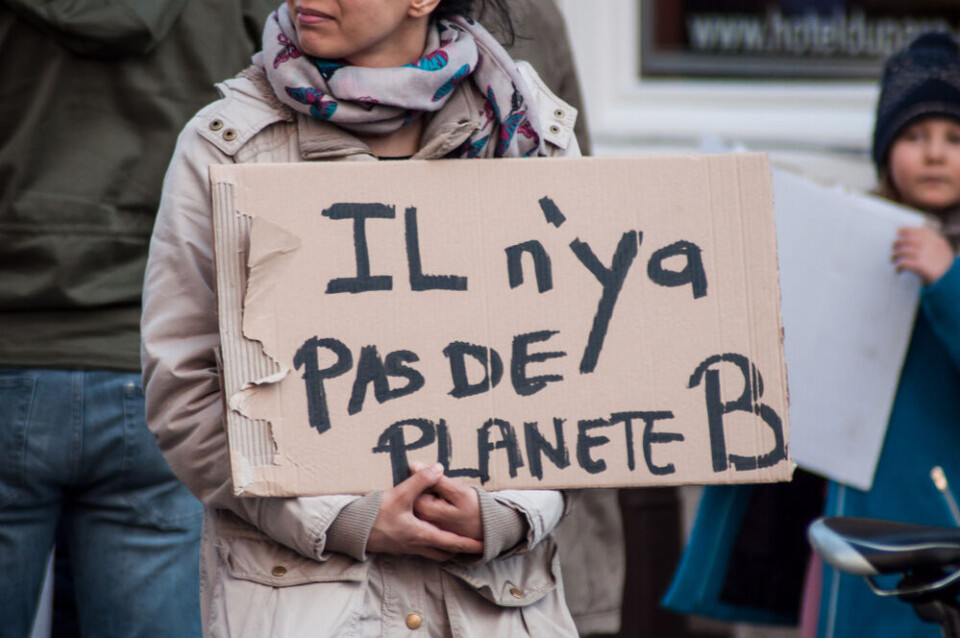-
Many Société Générale customers to be charged additional fees from April
There is some good news for international banking and instant transfers, however
-
Why gas prices in France are rising in April - and by how much
It comes after six consecutive monthly rises. Try these tips to reduce your bills
-
New notaire data suggests easing of Paris property crisis
Property experts have talked of ‘easing pressure’ and ‘breathing space’ after a four-year slump
What changes for the environment in France in 2024?
New household waste rules included as France continues to try and go green

Several environmental changes are set to come into force in France in 2024, most notably regarding new rules for household waste.
Other major changes include a restructuring of government eco-renovation grants and loans.
We give an overview of some of the key changes below:
Hedge planting
Next year will see a €110 million allocation in the Ministry of Agriculture’s budget for replanting hedgerows, which have often in recent decades been pulled up to the detriment of biodiversity and soil erosion.
Eco-renovations
Several measures aimed at helping with renovations continue this year, including the interest-free eco-loan, which had been set to come to an end. This is still available at many high street banks and allows people to borrow up to €50,000 repayable over 20 years for work such as replacing an old boiler or insulation
The MaPrimeRénov' home renovations grant is changing, with a greater focus on large-scale works.
Those applying for the loans will have to have a new energy performance check carried out to see if their homes are already fairly well-insulated, in which case they may be able to qualify for smaller work such as changing to a more eco-friendly boiler or putting in insulation, or whether, in the case of homes rated F or G, they should undertake a more overall renovation.
In the first case, just one kind of insulation will however no longer be deemed enough to qualify and you would have to for example, do at least two kinds if choosing to insulate.
For F and G-rated properties the overall maximum grant is being doubled to €70,000 and the grant can be for as much as 90% of the total cost. The households will also benefit from automatic help to obtain any further aids under the CEE energy efficiency certificates scheme (this is subsidised by energy companies).
For low and medium-income households, grants for installing an air/water or geothermal heat pump are being doubled to €2,000 and the grant will now also be available for reversible air/air heat pumps for summer air conditioning.
New FranceRénov centres will be opening this year to help people with these aids.
Read more: Energy-efficiency renovation grants reform for homes in France
New rules on sorting waste
Household ‘biowaste’ must by January 1, 2024 be separated from the rest of your rubbish.
It can be dealt with either by yourself – by turning it into compost to reuse on your plants – or by the council.
Despite this, there are concerns that much of France will not be ready on time and there are no sanctions planned.
Households will be expected to have a bin at home for kitchen waste, such as peelings, coffee grounds, old bread and meal leftovers, as well as green garden waste.
Blocks of flats should have new containers where you can place this (often with a brown lid) and councils should offer collection or deposit solutions for it.
Most rubbish is now burned or put into landfill; the law aims to reduce carbon emissions, improve soil with compost, and boost biogas production.
Read more:Most homes in France not ready to separate food waste come January 1
Reprieve for gas boilers
There were plans to ban the installation of new gas boilers, but this is not now taking effect.
However, CEE energy certificate aid will no longer be available for them, even if deemed ‘high-performance’.
Algae in student windows
Windows filled with microalgae are to feature in a new student residence in Paris, set to open in October.
The triple-glazed windows comprise standard double-glazing with an extra layer filled with warm water connected to a pump system, in which the microalgae will be grown.
Microalgae have a variety of commercial uses, including in health foods, as biofuel, and in the manufacture of pharmaceuticals and cosmetics.
Read more: Algae farm windows help French flats go green
























